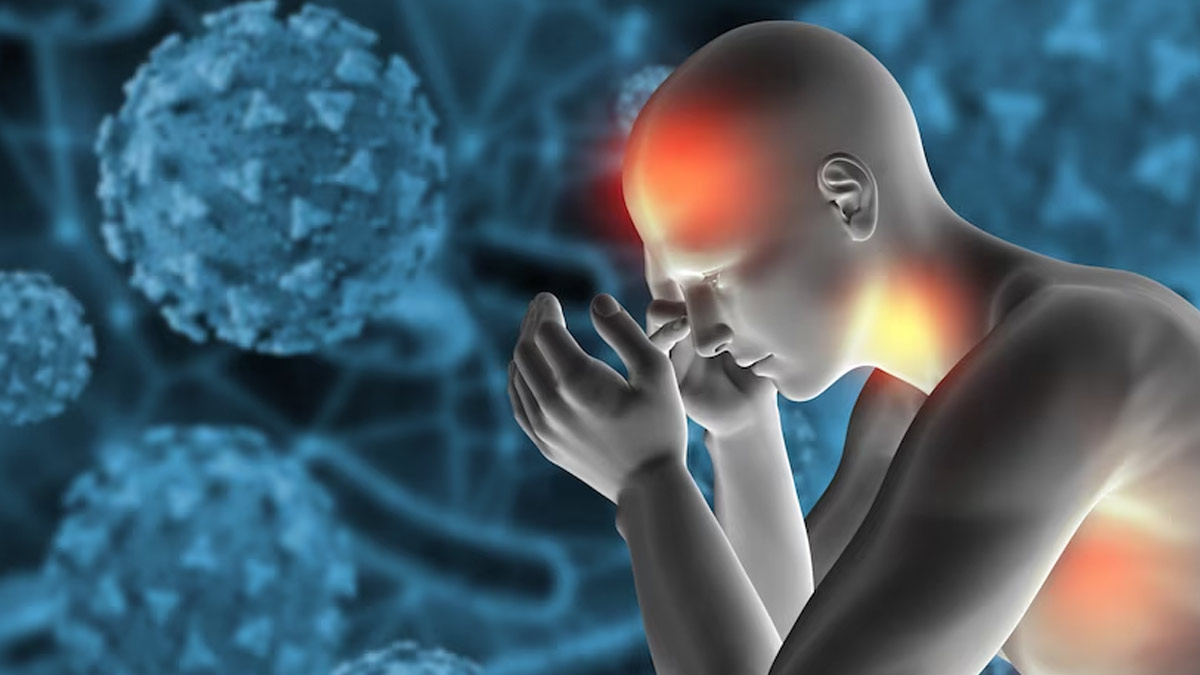
A new study published in the Journal Rheumatology found that more than 50% of people with an autoimmune disease also suffer from depression and anxiety. Autoimmune disease is a condition where the immune system, which usually defends the body against harmful invaders, mistakenly attacks its own healthy cells and tissues, leading to inflammation and damage. Speaking with the OnlyMyHealth team, Dr Sanjay Garg, mental health, Fortis Anandapur, Kolkata, says, “Autoimmune disorders can present with a variety of symptoms like pain, fatigue, nausea, headache and mental health problems like depression, anxiety and dementia.” Here’s what
Table of Content:-
The Link Between Autoimmune Disease And Mental Health

The research compared data from 1853 Systemic Autoimmune Rheumatic Diseases (SARDs) patients to 463 control groups and 289 clinicians and found 55% of SARDs patients as currently having depression and 57% anxiety.
The researchers highlighted that many people with an autoimmune disease were less likely to report their mental health problems or ask for help. This was due to a fear of being stigmatised. People who expressed their concerns complained of being ignored or not having their symptoms documented.
"Barriers to identifying neuropsychiatric symptoms included: (i) limits to knowledge, guidelines, objective tests and inter-speciality cooperation; (ii) subjectivity, invisibility and believability of symptoms; and (iii) under-eliciting, under-reporting and under-documenting," the study adds.
Also Read: What Type Of Headache Is It If You Have Pain Behind Your Eye
A Lancet study found that one in 10 people worldwide, 13% of women and 7% of men, have an autoimmune disease, which is why understanding the correlation between the condition and mental health is essential.

Dr Garg says, “There is growing awareness now that mental illnesses have origin in the brain and are caused by different damages and malfunction along with neuroinflammation.”
“Autoimmune disorders are known to cause damage to various parts of the brain like the orbito-frontal cortex, anterior cingulate gyrus and the dorsolateral prefrontal cortex, which play a significant role in mental health. They are also known to cause swelling and inflammation in the brain. Hence, they are highly likely to lead to depression, anxiety, psychosis and cognitive problems,” he adds.
According to the doctor, the risk of mental health problems in autoimmune disorders can range from 25% to 80%. There is a significant risk of suicide as well, he says, adding, “It can be even seen in children, also called PANDAS (Paediatric Autoimmune Neuropsychiatric Disorders Associated with Streptococcal Infection) after a throat infection.
Also Read: Can Vitamin D Deficiency Cause Excessive Head Sweating? Other Causes To Note
Strategies To Approach Mental Health Struggles

Simple strategies can help manage mental health struggles and its symptoms. These include:
- Increasing social support system
- Having a balanced diet
- Following an exercise program
- Reaching out for help at an early stage that goes a long way in preventing long term consequences
Depending upon an individual's problem, there may be a need for medications like antidepressants, mood stabilisers, antipsychotics and anti-anxiety medications or steroids, shares Dr Garg.
“Family education and psychotherapy, either supportive or cognitive behavioural, can help the patient and family cope with the distress. Research is ongoing to find a more clearer picture of the role of autoimmune diseases in mental health,” he concludes.
Also watch this video
How we keep this article up to date:
We work with experts and keep a close eye on the latest in health and wellness. Whenever there is a new research or helpful information, we update our articles with accurate and useful advice.
Current Version